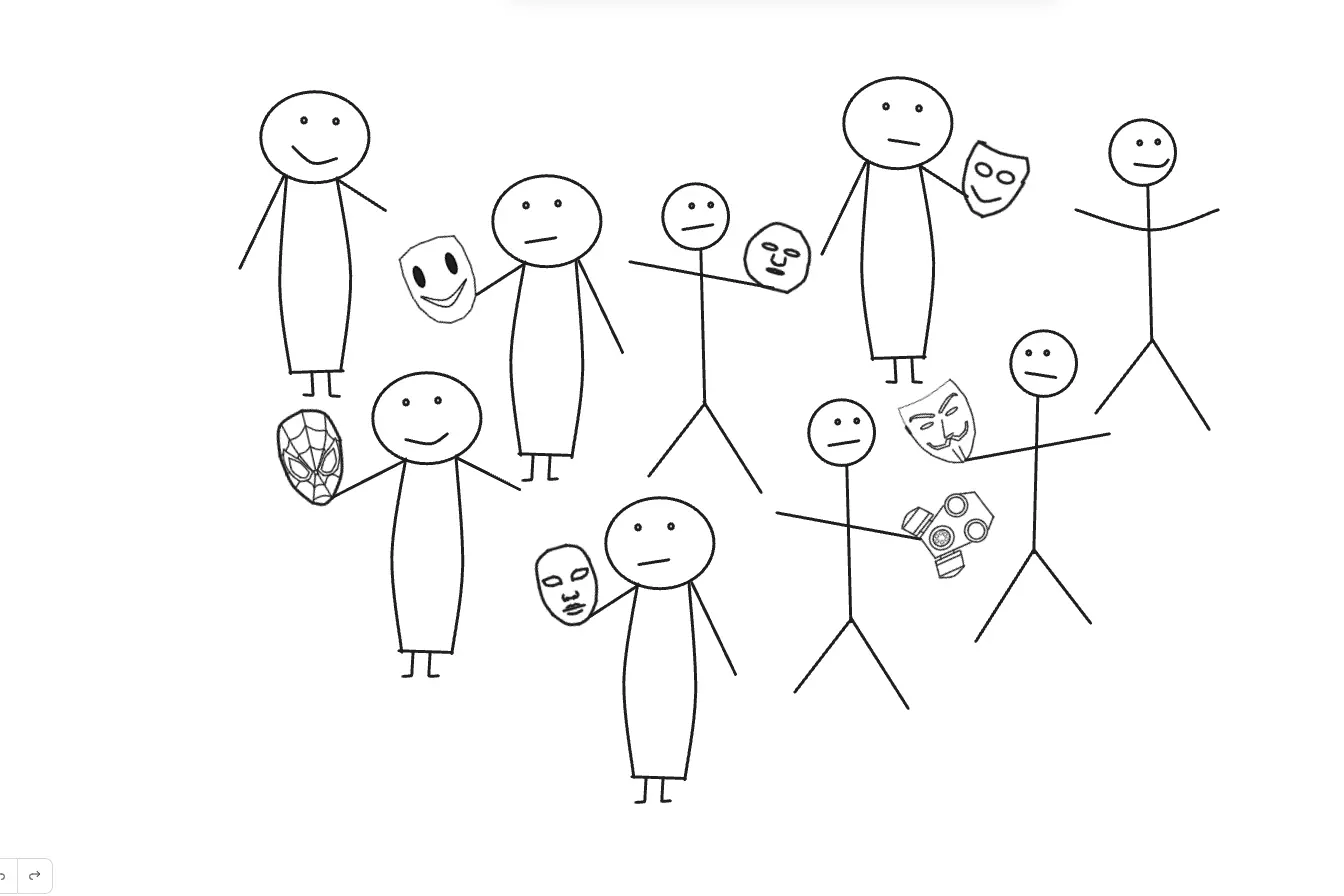
Dealing with imposter syndrome collectively
Jun 19, 2023 - 5 min readImposter Syndrome is very real in the modern world. Dealing with it collectively is one of its strongest antidotes. One way to normalize these feelings is to share experiences and collectively deal with them, whether in the role of a coworker, friend, or when you're personally affected.
Intro
I have previously written about the need to talk about imposter syndrome.
(You can read that article here)
This is somewhat a follow-up to my reflections and discussing why dealing with it collectively can be a really strong antidote.
These experiences might not fit everyone, but they can still be relevant. For those who are not dealing with this themselves, it can give some understanding, insights, and even ways to start a dialogue. A shared understanding is key.
Those who are affected by this might be able to recognize some of the examples and thought processes and hopefully help to further normalize the feeling and start dealing with it.
What you think they know
I often meet the misperception of what one person knows and what someone else knows. These thoughts or impressions can often lead to a feeling of not being good enough.
Here is a common thought pattern of unequal or misunderstood comparison.
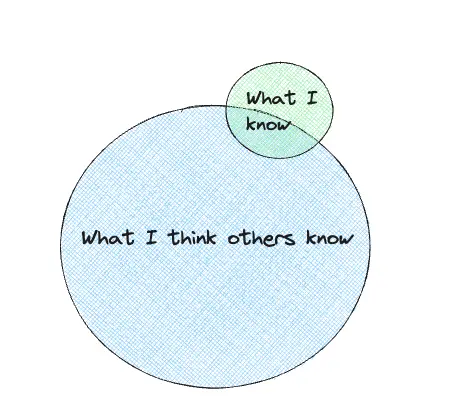
This can be how one person compares himself to someone else. This belief is made under a false premise. Obviously, we don't know how much someone else knows. And how is that even determined or measured?
Maybe some people have the same thoughts about the person who has these thoughts.
When this happens, it is almost always a matter of perspective.
You can ask yourself, do people around you share these views? Do they experience it the same way as you do?
This drawing is properly closer to reality.
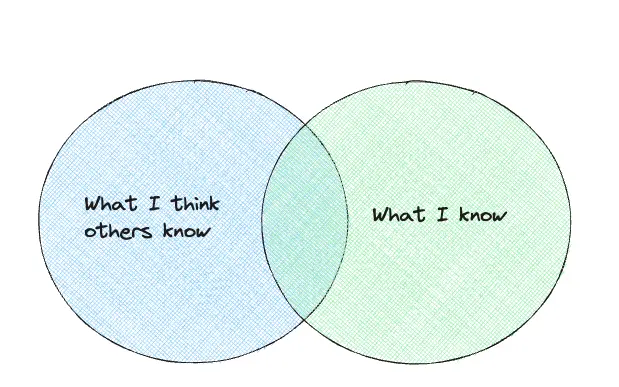
Of course, it varies, depending on this crazy idea that we can measure knowledge like that. A better illustration would likely look something like this.
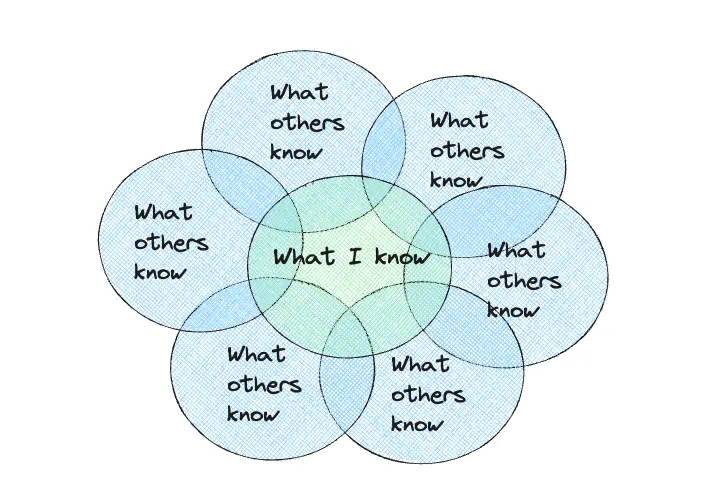
So who do you measure yourself against? And on what? There will always be someone who is better at this particular thing you are measuring right now. But there will also be 1000 people who are worse or know less.
Without talking to anyone about it, this perspective becomes very 1-sided. And the person you are talking to might share these thoughts or something similar. But who breaks the silence?
Paralyze or motivate
Some people who are under the influence of imposter syndrome, tend to split into 2 categories. Paralyzed vs. motivated.
It is not necessarily one or the other, people can jump between the two.
Paralyse
- Defensive pessimisme
- Fear of failing
- Stop you from trying
- Not giving your best
- Do not dare to invest
Motivate
- Strategic optimisme
- Full speed on development
- Constant improvement
- Stress and pressure
- Threat-based performance is the direct path to misery
When paralyzed, it has a huge impact on the lack of risk that is being taken. Without risk, a lot of opportunities and missed improvements will stagnate. The fear of failing alone will prevent people from trying and not giving their best. What happens if we give our best and still fail? It can be hard to deal with.
It is important to recognize that imposter syndrome can serve as a motivator, often fueling personal growth.
The continuous drive for self-improvement is a powerful force, but it should be approached with caution. It can transform into unhealthy pressure often due to a lack of perspectives.
Neglecting to celebrate one's successes often signals the presence of an unhealthy motivator.
Insecureness by itself is not a problem. A humble approach is often very valuable and well-regarded.
It is our reaction and how we deal with these feelings that determines the outcome.
Comparison
With the internet, our world suddenly became a lot bigger. Before the internet, we did not have that many people to compare ourselves to.
Now we are exposed to the entire world and it is available instantly through the internet on our phones, which we carry with us every day.
Social media made us even more exposed.
The thing is, these comparisons are on very unequal terms.
We compare our inner thoughts, with all the knowledge we have about our strengths and weaknesses, successes and failures, and our entire history.
That is compared to a carefully selected and often well-crafted and manipulated image of a person on social media.
The comparison is unequal, simply because of the lack of knowledge about the person we compare ourselves to.
Often we zoom in on a highly skilled specialist's niche, on a successful moment, carefully selected and posted on social media, but...
- You do not know their background
- You do not know their journey
- You do not know their sacrifice
- You do not know their feelings
- You do not know their weaknesses
- You do not know their insecurities
The comparison is not only unequal, it is also wrong.
If you compare yourself to one person, he will be better at a lot of things than you are. But the reverse is also true.
If you compare yourself to 1000 people and compare their strengths to your weaknesses, the outcome will never be in your favor.
I advocate for self-comparison instead. It is within our circle of control.
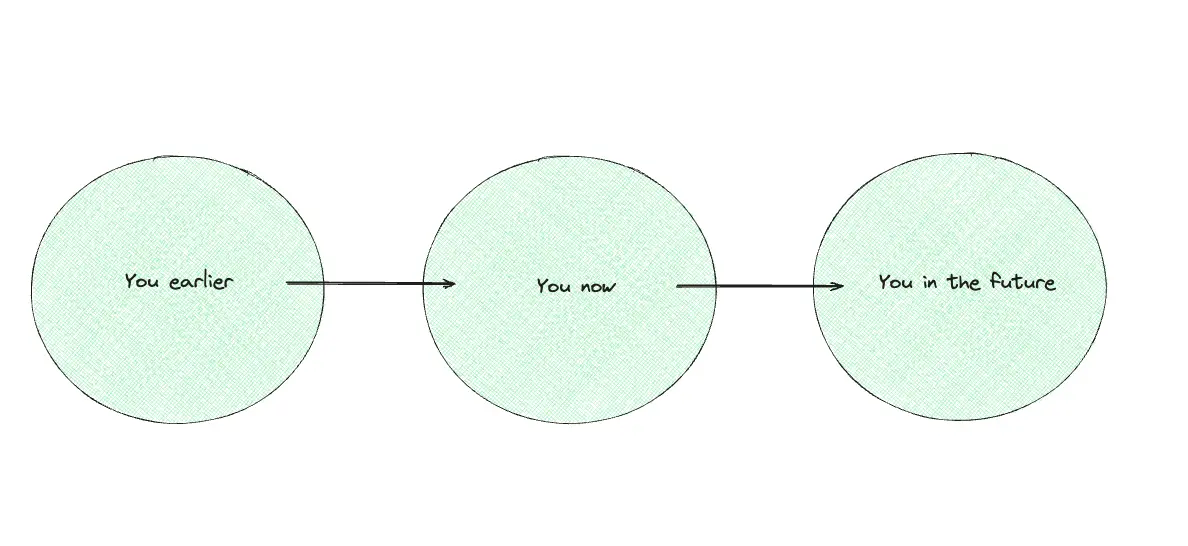
Expose yourself
The section above often triggers insecurity. Do you know someone who makes you insecure?
It is interesting to dive into this and investigate what triggers the insecurity. And even more interesting to get that person's perspective.
I would advise you to open up and talk openly about it.
Imposter syndrome isn't a disease. It's a normal response to internalizing impossible high standards.
Doubting yourself doesn't mean you're going to fail. It usually means you're facing a new challenge and you're going to learn. Feeling uncertainty is a precursor to growth.
Adam Grant
Dealing with it collectively can give some perspective on the insecurities. Some shared understanding and the first step to addressing it. We all have our strengths and weaknesses. A personality test will expose you. In a team, a diverse skillset is a superpower. It needs to be utilized, by being vocal and clear about strengths and weaknesses within each individual in the team. No one is expected to be the best at everything.
Wrap-up
We need to kill the myth of effortless success. In my opinion, we should shift our focus and pay tribute to the journey and the hard work that led to success.
While doing that, we should remember to stop reflect, and celebrate successes and achievements. Both our own and others.
Dismissing these has a dual negative impact that affects both the sender and receiver.
Pretending an achievement wasn't that big of a deal, or it was easy, or moving on to the next thing quickly seems to be somewhat common. I wish we could spend more time and energy talking about and analyzing what makes us impressed. I wish we could hold on to that wow feeling, maybe even recall it when touching the topic.
If someone comes up to you impressed by something you did, and you neglect it. This will make it a small thing, but will also kill the wow feeling from the other person.
Imposter Syndrome is lurking in the shadows and it is based on false assumptions. Instead of trying hard to prove your competencies, you should focus on improving them.
Embrace diverse skill sets, it is a superpower. Let's talk openly about it. And not behind each other's backs. Let's make sure that each individual feels valuable and let's make people's contributions clear and highlight the successes Pluralistic Ignorance is poison, the collective doubt in silence is one of the key factors to fuel this phenomenon.
We cannot make these feelings go away, but we can start dealing with them. So please, don't focus on proving knowledge, but focus on providing it. And don’t bring the social media circus to the real world.